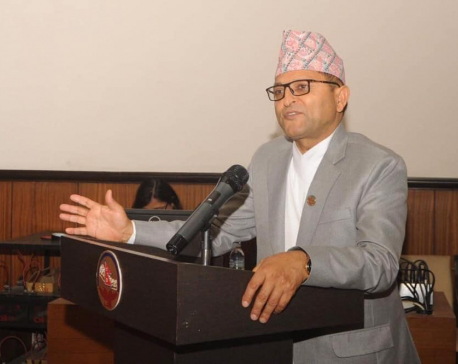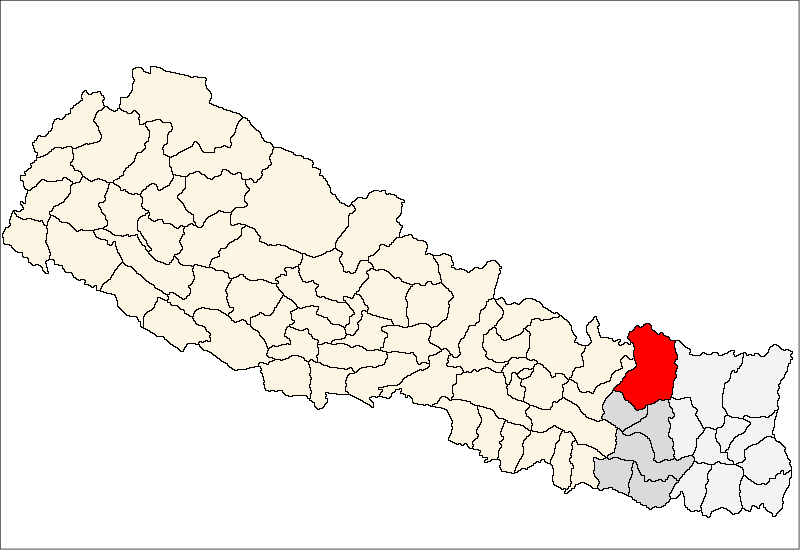
OR
National Assembly chairman voices concern over immediate Nepali citizenship for foreign women upon marriage
Published On: December 19, 2023 04:40 PM NPT By: Republica | @RepublicaNepal

KATHMANDU, Dec 19: The chairman of the National Assembly, Ganesh Timilsina, has expressed dissatisfaction with the practice of foreign daughters-in-law obtaining Nepali citizenship immediately after marriage. Speaking at an event in the capital on Tuesday, he noted that the law allowing citizenship for foreign daughters-in-law upon marriage was enacted amid controversy.
Speaker Timilsina remarked, "The provision for foreign women to acquire Nepali citizenship immediately after marrying a Nepali man was passed amid controversy." He also recalled the existing system where the citizenship process could only be started after seven years of marriage and residence in India.
Referring to Nepali citizens marrying in India and China, Timilsina added, "We have populous neighbors. There is suspicion that occasional disputes with neighbors today may lead to problems or undermine nationalism tomorrow."
Bimala Rai Paudel, a member of the National Assembly, stated in the program that there exists a legal system where trust is placed in daughters-in-law rather than daughters. She highlighted the discrepancy, noting that Nepali girls marrying in India have to wait seven years to obtain citizenship in that country. Paudel said, "We are compelled to lend support even knowing there is discrimination. As MPs, our hands are tied in the name of party whip."
Another National Assembly member, Anita Devkota, pointed out the disparity between sons and daughters in the citizenship process. "We immediately grant citizenship to those brought in by sons, but not to those who come in through daughters' marriages. This is the difference between sons and daughters," she remarked.
Devkota emphasized the continuation of daughters marrying and moving to men's households due to the lack of equal property rights, stating that many issues could be resolved with the establishment of such rights.
You May Like This

National Assembly Chairman Timilsina gets stuck in Chandragiri cable car for a while
KATHMANDU, July 6: National Assembly Chairman Ganesh Prasad Timilsina got stuck in a cable car in Chandragiri for a while. Read More...

NA Chairman Timilsina holds video conference with MPs
KATHMANDU, April 13: Amid nationwide lockdown, Chairperson of National Assembly Ganesh Timilsina on Monday held a discussion with lawmakers through... Read More...

NA Chair's chamber decoration questioned in OAG report
KATHMANDU, April 13: The annual report of the Office of the Auditor General has questioned the spending of Rs 29.7... Read More...




Just In
- NEA Provincial Office initiates contract termination process with six companies
- Nepal's ready-made garment exports soar to over 9 billion rupees
- Vote count update: UML candidate continues to maintain lead in Bajhang
- Govt to provide up to Rs 500,000 for building houses affected by natural calamities
- China announces implementation of free visa for Nepali citizens
- NEPSE gains 14.33 points, while daily turnover inclines to Rs 2.68 billion
- Tourists suffer after flight disruption due to adverse weather in Solukhumbu district
- Vote count update: NC maintains lead in Ilam-2













Leave A Comment